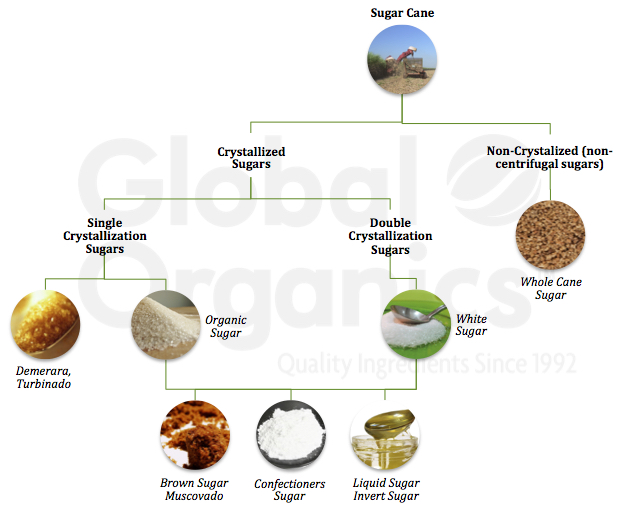Sugar and Cane: A Guide to Their Nutritional Benefits and Uses
Sugar and Cane: A Guide to Their Nutritional Benefits and Uses
Blog Article
Why Walking Stick Sugar Handling Chemicals Are Essential for Modern Sugar Refining
The function of walking stick sugar processing chemicals in modern sugar refining can not be overemphasized, as they are important to enhancing both the performance of extraction and the total top quality of the end product. Agents such as phosphoric acid and certain flocculants are utilized to remove pollutants, resulting in sugar that not only fulfills consumer assumptions yet likewise sticks to industry standards. Nevertheless, the ramifications of these chemicals extend beyond quality, touching upon market dynamics and ecological considerations. This raises essential questions about the sustainability of such techniques and their effect on the future of sugar manufacturing.
Role of Processing Chemicals
The effectiveness of walking stick sugar processing hinges significantly on the critical application of processing chemicals. These chemicals play an essential function in boosting the efficiency and high quality of sugar removal and refining. From the preliminary stages of juice extraction to the last filtration actions, processing chemicals promote numerous critical operations.
In the removal phase, chemicals such as phosphoric acid and calcium hydroxide are employed to enhance the explanation procedure, aiding to eliminate contaminations and suspended solids from the walking stick juice. This not only improves the return yet likewise makes sure the clarity of the end product. Furthermore, agents like flocculants aid in the quick settling of pollutants, consequently improving the general process.
As the handling developments, chemicals are utilized in decolorization and condensation phases. Triggered carbon and ion exchange materials offer to get rid of shade and smell, ensuring that the refined sugar meets customer high quality standards. Ultimately, the role of handling chemicals expands past operational efficiency; they dramatically affect the sensory characteristics of the end product, contributing to market competition. Thus, the careful choice and application of these chemicals are important for accomplishing optimal outcomes in cane sugar processing.
Secret Sorts Of Chemicals
Cane sugar handling depends on a selection of crucial chemicals that facilitate each stage of production. These chemicals play essential roles in clarifying, lightening, and detoxifying the sugar removed from walking cane.
One key category of chemicals consists of flocculants, such as polyacrylamide, which aid in the information procedure by promoting the gathering and settling of impurities. In addition, calcium hydroxide is often employed to neutralize level of acidity and help in the removal of non-sugar elements.
Bleaching agents, such as activated carbon and sulfur dioxide, are made use of to decolorize the syrup, leading to a clearer final product. These chemicals aid get rid of shade substances that might influence the sugar's appearance and bankability.
Additionally, phosphoric acid works as a pH regulatory authority throughout the processing stages, making certain optimal problems for the enzymatic tasks associated with sugar extraction and filtration.
Other essential agents include edta (ethylenediaminetetraacetic acid), which chelates steel ions that might militarize unfavorable responses, and salt hydroxide, which helps in pH control throughout the refining process. Collectively, these chemicals boost efficiency and ensure a top quality walking cane sugar item.
Benefits for Sugar Quality
Frequently overlooked, making use of particular processing chemicals dramatically enhances the general high quality of walking stick sugar. These chemicals play a critical role in refining processes, guaranteeing that the final item fulfills rigorous market criteria for purity and taste.

Additionally, processing chemicals help in accomplishing a regular granulation and structure, which are vital for consumer approval. By controlling the crystallization procedure, these chemicals guarantee that the sugar crystals form consistently, leading to an extra appealing product that dissolves well in numerous applications.
In addition, making use of these chemicals can improve the service life of walking stick sugar by lessening wetness absorption and microbial growth. On the whole, the calculated application of handling chemicals is necessary for providing premium cane sugar that fulfills description customer assumptions and industry needs.
Environmental Impact Factors To Consider

Moreover, the energy-intensive nature of sugar refining, worsened by chemical usage, frequently leads to increased carbon discharges. This adds to environment modification and raises problems regarding the sustainability of existing refining practices. Additionally, the sourcing of these chemicals may include methods that threaten biodiversity, such as monoculture farming, which decreases the resilience of farming ecosystems.

To mitigate these effects, sugar refiners are significantly discovering lasting choices and taking on best techniques that reduce chemical use. Carrying out strenuous environmental management systems can help ensure that the refining procedure lines up with environmental standards and promotes biodiversity. Ultimately, a balanced approach that focuses on both sugar high quality and ecological stewardship is crucial for the long-term viability of the sugar industry.
Future Patterns in Refining
As the sugar industry faces the environmental challenges connected with standard refining approaches, cutting-edge approaches are emerging to improve both efficiency and sustainability. One considerable fad is the adoption of environment-friendly chemistry concepts, which prioritize the use of non-toxic, eco-friendly processing chemicals. This change not just minimizes ecological impact but likewise addresses customer demand for cleaner manufacturing approaches.
Another encouraging advancement is the execution of advanced filtering technologies, such as membrane splitting up and adsorption processes. These strategies enhance the clearness and top quality of the sugar while reducing the quantity of wastewater created during refining. Furthermore, the combination of electronic innovations, including IoT and AI, is changing operational effectiveness by enabling real-time monitoring and predictive maintenance, thus decreasing resource waste.
Additionally, making use of spin-offs from sugar refining, such as bagasse and molasses, is gaining traction. These materials can be converted right into biofuels or value-added products, contributing to a circular economy within the market. Collectively, these trends indicate a change towards more lasting methods that not just improve operational performance but also straighten with worldwide sustainability objectives, ensuring the future stability of sugar refining.
Verdict
Walking stick sugar handling chemicals are necessary in modern-day sugar refining, considerably enhancing the efficiency and quality of sugar removal. The strategic use of these chemicals not only improves the purity and flavor of the end product but likewise makes sure regular formation and appearance. As the sector significantly prioritizes sustainability, the adoption of environmentally-friendly handling agents is likely to form future fads in refining, eventually bring about better items and expanded life span for consumers.

Eventually, a balanced approach that focuses on both sugar quality and ecological stewardship is vital for the lasting viability of the sugar industry.
Walking cane sugar processing chemicals are vital in modern sugar refining, considerably enhancing the efficiency and top quality of sugar extraction.
Report this page